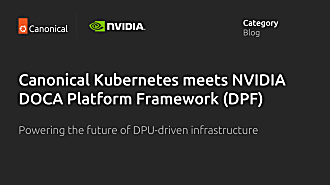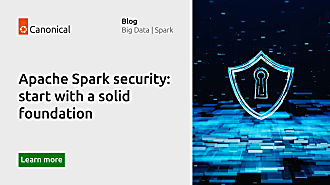Canonical
on 19 June 2017

The purpose of this update is to keep our community engaged and informed about the work the team is doing. We’ll cover important announcements, work-in-progress for the next release of MAAS and bugs fixes in release MAAS versions.
MAAS Sprint
The Canonical MAAS team sprinted at Canonical’s London offices this week. The purpose was to review the previous development cycle & release (MAAS 2.2), as well as discuss and finalize the plans and goals for the next development release cycle (MAAS 2.3).
MAAS 2.3 (current development release)
The team has been working on the following features and improvements:
- New Feature – support for ‘upstream’ proxy (API only) – Support for upstream proxies has landed in trunk. This iteration contains API only support. The team continues to work on the matching UI support for this feature.
- Codebase transition from bzr to git – This week the team has focused efforts on updating all processes to the upcoming transition to Git. The progress so far is:
-
- Prepared the MAAS CI infrastructure to fully support Git once the transition is complete.
- Started working on creating new processes for PR’s auto-testing and landing.
- Django 1.11 transition – The team continues to work through the Django 1.11 transition; we’re down to 130 unittest failures!
- Network Beaconing & better network discovery – Prototype beacons have now been sent and received! The next steps will be to work on the full protocol implementation, followed by making use of beaconing to enhance rack registration. This will provide a better out-of-the-box experience for MAAS; interfaces which share network connectivity will no longer be assumed to be on separate fabrics.
- Started the removal of ‘tgt’ as a dependency – We have started the removal of ‘tgt’ as a dependency. This simplies the boot process by not loading ephemeral images from tgt, but rather, having the initrd download and load the ephemeral environment.
- UI Improvements
- Performance Improvements – Improved the loading of elements in the Device Discovery, Node listing and Events page, which greatly improve UI performance.
- LP #1695312 – The button to edit dynamic range says ‘Edit’ while it should say ‘Edit reserved range’
- Remove auto-save on blur for the Fabric details summary row. Applied static content when not in edit mode.
Bug Fixes
The following issues have been fixed and backported to MAAS 2.2 branch. This will be available in the next point release of MAAS 2.2 (2.2.1) in the coming weeks:
- LP: #1678339 – allow physical (and bond) interfaces to be placed on VLANs with a known 802.1q tag.
- LP: #1652298 – Improve loading of elements in the device discovery page



